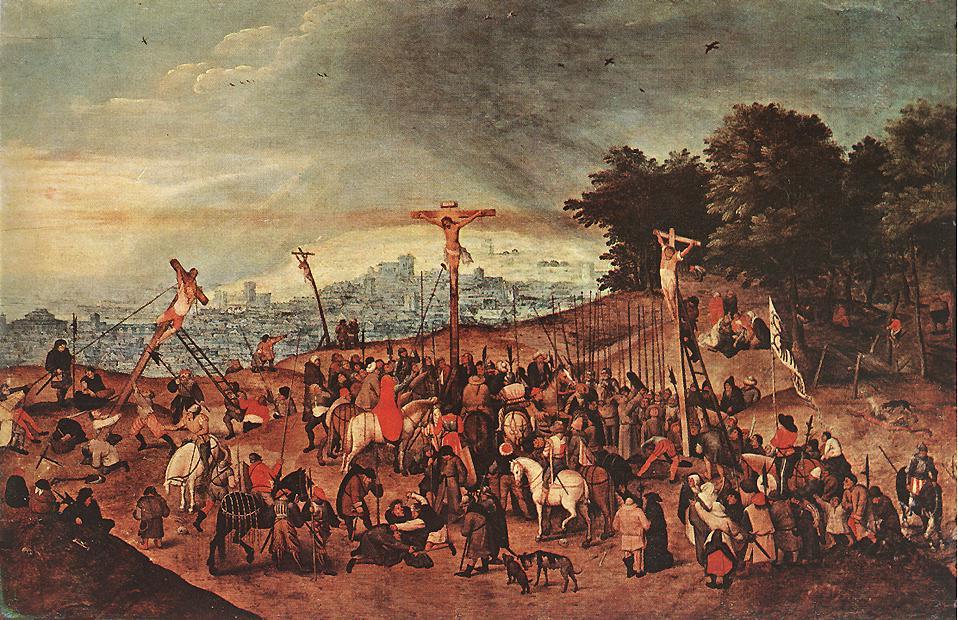Athetotheist wrote: ↑Wed Oct 11, 2023 4:31 pm If not correcting someone who calls you the Messiah means that you can be considered the Messiah, then history is quite possibly littered with Messiahs.
Jesus is not the only Jew that has been identified as a messiah. There have been multiple Jews throughout history that claim (either by themselves or by others) to be a messiah.
Throughout Jewish history, there have been many people who have claimed to be the mashiach, or whose followers have claimed that they were the mashiach: Shimeon Bar Kokhba, Shabbatai Tzvi, Jesus, and many others too numerous to name.
https://www.jewfaq.org/mashiach
The Roman destruction of Jerusalem’s Second Temple and the Jews’ subsequent exile, persecution, and suffering, however, only intensified their messianism, which continued to develop theologically and to express itself in messianic movements. Almost every generation had its messianic precursors and pretenders — the best-known case being that of the 17th-century pseudo-messiah Shabbetai Tzevi. Belief in and fervent expectation of the messiah became firmly established tenets of Judaism and are included among Maimonides’ 13 Articles of Faith. Modernist movements in Judaism have attempted to maintain the traditional faith in an ultimately redeemed world and a messianic future without insisting on a personal messiah figure.
https://www.britannica.com/topic/messiah-religion
– Dositheos the Samaritan (mid 1st century), Origen wrote that Dositheos wished to persuade the Samaritans that he was the Jewish Messiah who was prophesied by Moses, and classes him with John the Baptist, Theodas, and Judas of Galilee as people whom the Jews mistakenly held to be the Christ (Hom. xxv in Lucam; Contra Celsum, I, lvii).– Simon bar Kokhba, born Simon ben Koseva, (d. 135 AD) who led the apical Bar Kokhba revolt against the Roman Empire. For three years, bar Kokhba ruled as the nasi, or prince, of a semi-independent secessionist state in Israel. Some rabbinical scholars, including the great sage Akiva, proclaimed bar Kokhba as the Messiah. He died during the rebels’ last stand at the fortress of Betar, after which the rebellion was brutally crushed and the land was left largely decimated, cementing both the slowly growing Jewish diaspora and the schism between Christianity and Judaism.
– Shlomo Molcho, born Diogo Pires (1500–1532) in Lisbon to parents who were Jewish converts to Christianity. After meeting David Reuveni, he left his post as secretary to the king’s council, traveled to Damascus, Safed, Jerusalem and later Solonika, where he studied kabbalah and became a mystic. He was eventually reunited with Reuveni, declared his aspirations as messiah, and was finally burned at the stake by the Holy Roman Emperor Charles V, for refusing to convert back to Christianity.
– Sabbatai Zevi (alternative spellings: Shabbetai, Sabbetai, Shabbesai; Zvi, Tzvi) (b. at Smyrna 1626; d. at Dulcigno (present day Ulcinj) 1676), a Sephardic ordained rabbi from Smyrna (now İzmir, Turkey), who was active throughout the Ottoman Empire and claimed to be the long-awaited Messiah. He was the founder of the Sabbatean movement, whose followers subsequently were to be known as Dönmeh “converts” or crypto-Jews – one of the most important messianic movements, whose influence was widespread throughout Jewry.[citation needed] His influence is felt even today. After his death, Sabbatai was followed by a line of putative followers who declared themselves Messiahs and are sometimes grouped as the “Sabbethaian Messiahs”.
https://en.wikipedia.org/wiki/List_of_messiah_claimants
Menachem Mendel Schneerson was an Orthodox rabbi and known as Lubavitcher Rebbe. He lived from 1902 to 1994 and was very influential in the Jewish community. Many of of his followers considered him to be the Messiah.
He is recognized as the pioneer of Jewish outreach. During his lifetime, many of his adherents believed that he was the Messiah. His own attitude to the subject, and whether he openly encouraged this, is hotly debated among academics. During Schneerson’s lifetime, the messianic controversy and other issues elicited fierce criticism from many quarters in the Orthodox world, especially earning him the enmity of Rabbi Elazar Shach.
https://en.wikipedia.org/wiki/Menachem_ … Schneerson
Some members of the Chabad community believe that Rabbi Menachem Mendel Schneerson, the deceased seventh Rebbe of the Chabad-Lubavitch dynasty, is the Jewish messiah.
https://en.wikipedia.org/wiki/Chabad_messianism
Even Alexander the Great was considered a messiah by some.
the Jewish contemporaries of Alexander the Great, dazzled by his glorious achievements, hailed him as the divinely appointed deliverer, the inaugurator of the period of universal peace promised by the Prophets.
https://debatingchristianity.com/forum/viewtopic.php?p=1133135#p1133135
